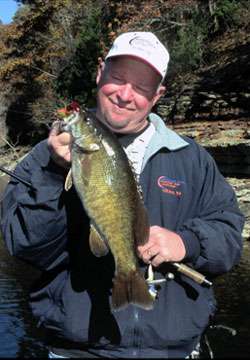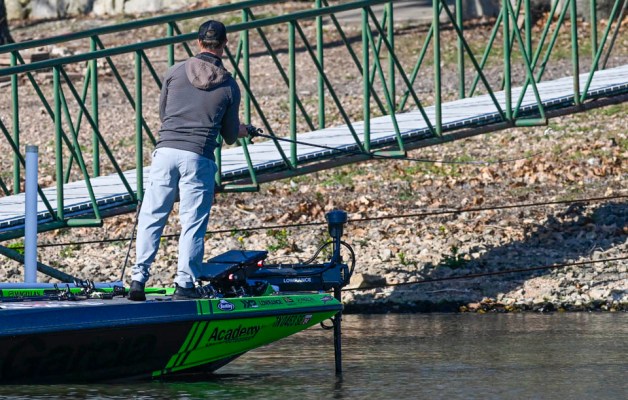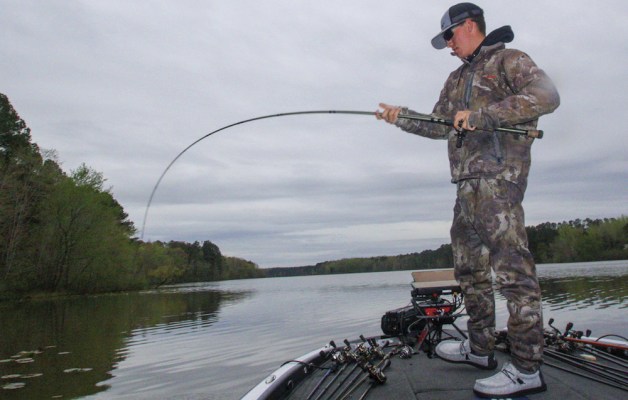
I grew up in a little town called Tompkinsville, Ky. It's only about 17 or 18 miles from where I live now in Celina, Tenn. As I look back, I was very lucky to grow up in Tompkinsville. If I had grown up in Celina, fishing Dale Hollow Lake every time I had the chance, I might not be as good of a fisherman. I might even have given up the sport at a young age.
I think I was lucky because I got to fish a little lake in town that really shaped the way I fish and think about fishing. I'm not sure of the name of the lake, either, but it's generally known as Tompkinsville City Lake.
When I was a kid I didn't have access to a fancy bass boat or anything like that. I had a small aluminum boat and a trolling motor, and my mother would drive me to the lake so I could go fishing. I'd pull the boat out of the truck bed, clamp the motor on and get out on the water. I was probably in my late teens before I ever realized that you could do anything greater than that.
Tompkinsville City Lake isn't very big, and there's almost no cover on the lake at all. What is has is lots of deep water, lots of dropoffs and plenty of big smallmouth bass. The lake didn't get a lot of intelligent fishing pressure back then. It probably doesn't get much today, either. The legendary Dale Hollow is less than half an hour away, and a lot of anglers don't realize what big bass you can catch from small waters, so most of them just keep on driving when they see the lake.
But I had to fish it because it was all I had to fish.
It made me a better smallmouth angler, too.
Because there was no cover out there along the banks, I had to learn to get away from the shoreline and focus my efforts on offshore structure.
Because it was clear, I had to use light line and small rods and reels that would let me backreel when I hooked a good one.
Because it was deep, I had to learn patience and the qualities it takes to slowly inch a little jig or grub along the bottom in 30 or 40 feet of water.
In short, because it was the way it was — and probably still is — I had no choice but to adapt and learn.
If those formative years had been spent mostly on Dale Hollow, things could have been so tough that I might have given up … or so easy that I might have lost interest.
Small waters are great places to learn bass fishing and even better places to focus your attention and discover the real reasons you're out there on the water. If you haven't tried some small waters lately, you're missing out and maybe even falling behind.





